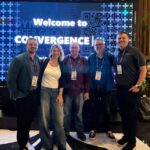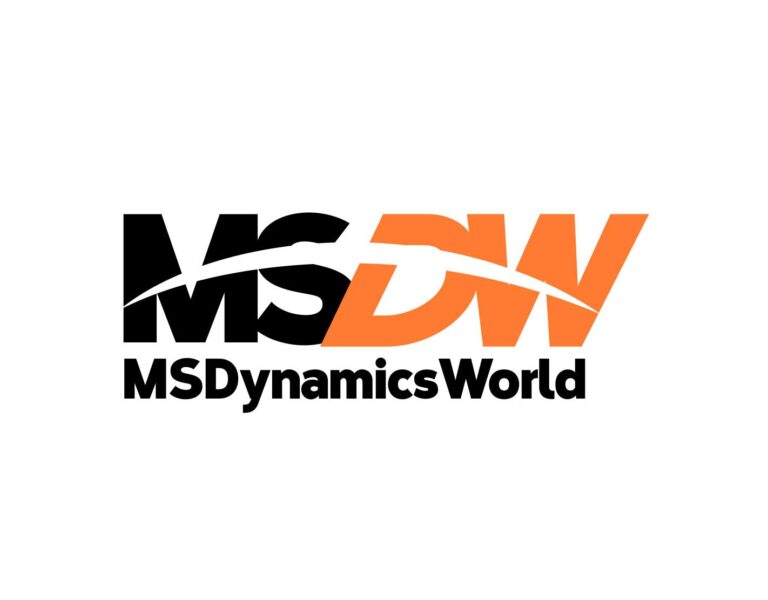The number of voices opining about AI is growing, and deafening. Pinpointing the ones that are worth listening to can be tough. As AI reshapes industries, including yours, you need to stay in the know by following a handful of individuals playing key roles in the revolution.
The people influencing AI aren’t just those building the technology. This list includes individuals from academia and technology, writers chronicling the AI revolution, and those hoping to shape ethics and regulation.
Here are twelve AI influencers you should follow.
Academia
Who: Ethan Mollick
What he does:
- Associate professor at the Wharton School, innovation and entrepreneurship
- Author of “Co-intelligence: Living and Working With AI”
- Founder, “One Useful Thing” newsletter
Social media presence: LinkedIn (111,000 followers); X (211,000 followers)
Why you should know Ethan: Dubbed the “AI whisperer,” Mollick advises some of the most prominent people building, using, defining, and regulating AI, including Meta, OpenAI, Anthropic, the White House, and private industry. His primary area of focus deals with the impact of AI on work and everyday life. He is frequently quoted as an AI expert in major publications like the New York Times, Wall Street Journal, Reason, Fast Company, and Politico, and he publishes AI research on topics including the effects of AI on knowledge worker productivity, and using AI as a classroom teaching tool. He is a featured author in many other publications including Harvard Business Review.
Insight: “Smaller AI models that can run on your phone are available and will soon connect to larger networks of AIs to solve hard problems. And the nature of our interaction with AIs themselves might be changing, as agents and AI devices start to spread.” — Mollick, writing in his newsletter
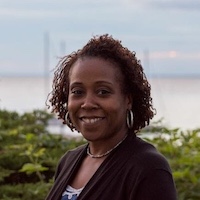
Who: Ayanna Howard
What she does:
- Roboticist, entrepreneur, educator
- Board member for Black in AI
- Dean of the College of Engineering at Ohio State University
- Founder and president of the board of directors of Zyrobotics, an award-winning company that develops mobile therapy and educational products for children with special needs
Social media presence: LinkedIn (30,290 followers; LI Top Voice); X (7,682 followers)
Why you should know Ayanna: Few things are more synonymous with “the future” than AI and robotics. Howard is a leading voice on both. A distinguished roboticist who leads Ohio State University’s engineering department, she’s also a member of the Advisory Board for Black In AI, an organization focused on increasing the inclusion and presence of Black people in AI. Additionally, Howard founded Zyrobotics, an award-winning organization that develops AI-powered tools for special-needs children.
Insight: “If we are not careful, we might be living another 1957 Sputnik moment. Today, with nearly every aspect of life evolving to include AI, the U.S. cannot afford to sit back and wait for an AI-based crisis to hit. The U.S. must make bold investments in growing the AI talent pool to help protect democracy, citizen’s quality of life, and the overall health of the nation.” — Howard, in testimony to the U.S. Joint Economic Committee

Who: Dr. Fei-Fei Li
What she does:
- AI researcher & professor, Stanford
- Co-director, Stanford Human-Centered AI Institute
- Author, “The Worlds I See: Curiosity, Exploration, and Discovery at the Dawn of AI”
- Co-founder, Chair, AI4ALL
Social media presence: LinkedIn (35,320 followers); X (458,800 followers)
Why you should know Fei-Fei: The “godmother of AI” has, among other things, published more than 300 scientific articles in top journals. She is the inventor of ImageNet, a database of annotated images that was a catalyst for today’s AI. What started as an idea to “map out the entire world of objects” led to an annual competition to see what algorithms could identify objects in the dataset’s images with the lowest error rate. Competition winners went on to work across tech from Google to Huawei. That’s partly why Wired called her “one of a tiny group of scientists … who are responsible for AI’s recent remarkable advances.” She is focused on what she calls “human-centered AI” that works to support scientific breakthroughs and advocates for peoples’ role alongside AI in the future.
Insight: “The public sector is now significantly lagging in resources and talent compared to that of industry. This will have profound consequences because industry is focused on developing technology that is profit-driven, whereas public-sector AI goals are focused on creating public good.” — Li, to the Washington Post
Technology

Who: Yann LeCun
What he does:
- VP & Chief AI Scientist at Meta
- Professor of computer science, data science, and neural science at NYU
- Professor, researcher, and R&D manager in AI, machine learning, deep learning, computer vision, intelligent data analysis, data mining, data compression, digital library systems, and robotics.
Social media presence: LinkedIn (709,155 followers); X (723,400 followers)
Why you should know Yann: Often called one of the godfathers of AI, along with Geoffrey Hinton and Yoshua Bengio, LeCun was a co-recipient of the 2018 Turing Award, which recognizes major contributions to computer science (think of it as the Nobel Prize for computing). A highly distinguished pioneer in the field, LeCun was named a Chevalier in the French Legion of Honor in 2023 by French President Emmanuel Macron, and received the 2024 Global Swiss AI Award at the WEF at Davos. He is widely credited for advancing convolutional neural networks, which are deep-learning networks used for image classification and object recognition tasks. He has also published or co-published dozens of papers on AI, machine learning, robotics, computer vision, and image compression in the last two years alone.
Insight: “We can make humanity smarter with AI. AI, basically, will amplify human intelligence. It’s as if every one of us will have a staff of smart AI assistants. They might be smarter than us. They’ll do our bidding, perhaps execute a task in ways that are much better than we could do ourselves.” — LeCun, on the Lex Fridman Podcast

Who: Clara Shih
What she does: CEO of Salesforce AI
Social media presence: LinkedIn (659,000 followers, top voice); X (24,000 followers)
Why you should know Clara: In addition to leading AI efforts across Salesforce, Shih has been a powerful advocate for using only trusted data and ethical processes in AI. She is a frequent speaker at major AI events including ones hosted by the Milken Institute, the FCC and Nvidia, and she hosts a podcast, Ask More of AI, in which she conducts in-depth interviews with leading AI entrepreneurs, investors, and creatives. She was named one of Time magazine’s 100 most influential people in AI in 2023.
Insight: “I feel a tremendous sense of personal responsibility toward creating AI that is trusted … AI is going to be transformational for jobs, the way the internet was. I do have a healthy level of concern about it, but I’m an action-oriented person, so being in this role gives me a great platform to use to educate others, including members of Congress, CEOs and our customers.” — Shih, to the New York Times

Who: Reid Hoffman
What he does:
- Strategic partner, Greylock Ventures
- Co-founder, Inflection AI
- Author, Long Reids newsletter
- Co-founder, LinkedIn
- Many board roles
Social media presence: LinkedIn (2.6 million followers) X (710,000 followers)
Why you should know Reid: Hoffman has a deep, multi-pronged involvement in AI. He invests in AI startups (he was a founding investor of OpenAI), advocates for using AI to improve education and healthcare, and is a prolific speaker and author. As an uber- successful entrepreneur, he is one of tech’s most influential proponents of AI. His observations about the promise and peril of AI are helping shape the conversation. Case in point: his mind-bending interview with an AI version of himself demonstrated the awesome possibilities of the technology, and a book, Impromptu: Amplifying Our Humanity Through AI, which he wrote with GPT-4.
Insight: “One thing that’s certain in the next five-to-ten years is that we are going to have agents everywhere, doing all kinds of things for us through all kinds of interactions. There will be agents for groups, agents for companies, and many other types. And the most natural thing when you’re doing engineering is to get IQ correct. But one of the things that’s really essential for people is how we bring EQ (emotional quotient) into it.” — Hoffman, on McKinsey’s On the Edge podcast
The Chroniclers

Who: Rowan Cheung
What he does: Founder of The Rundown AI, one of the largest AI newsletters
Social media presence: LinkedIn (36,000 followers); X (512,000 followers)
Why you should know Rowan: AI email newsletters have sprung up everywhere over the last year or two. Rowan Cheung’s daily publication, The Rundown AI, is one of the fastest-growing, currently boasting more than 600,000 subscribers. His newsletter covers AI news, spotlights AI tools, and offers step-by-step guides for implementing AI workflows. He also recently launched The Rundown University, a learning community with one-on-one AI support and expert-led workshops. In addition to The Rundown, Cheung has built a following of more than 500,000 on X, where he breaks AI news and shares tips for using AI tools.
Insight: “We’re in the early innings, but especially as capabilities continue to increase, there will be a massive gap between early adopters who spend time testing and have a real grasp of everything possible, and those who just try ChatGPT once and never again. If you’re reading this, you’re still early. Start now or you’ll be playing catch-up in a year’s time.” — Cheung, on X

Who: Karen Hao
What she does:
- Contributing writer, The Atlantic
- Lead designer, AI Spotlight Series at the Pulitzer Center
- Author of an upcoming book on OpenAI
Social media presence: LinkedIn (20,000 followers) X (61,000 followers)
Why you should know Karen: Hao has been explaining AI since at least 2018. That year, she published a flowchart in MIT Technology Review called “What is AI?” which was later exhibited as an installation in the Museum of Applied Arts in Vienna. She has a uniquely diverse set of skills and interests that make her work a must-read for anyone following AI. With a degree in mechanical engineering from MIT, she’s as comfortable getting into the weeds as she is writing about the human aspects of technological progress, the poor treatment of African data annotators, and the outsized water consumption of AI data centers.
Insight: “A big question looms over generative AI: what really is its impact on the environment? I spent months investigating a single campus of … data centers in the Arizona desert — designated in part for OpenAI — in an attempt to find out. The process underscored just how little visibility we have into basic information, such as the water and energy consumption of these silicon monstrosities, which are now being built at an unprecedented rate, including in the desert.” — Hao, in a LinkedIn post
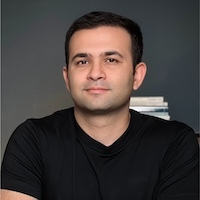
Who: Zain Kahn
What he does: Co-founder and CEO, Superhuman newsletter
Social media presence: LinkedIn (916,000 followers, Top Voice); X (517,000 followers)
Why you should know Zain: He is the primary writer of the fast-growing AI newsletter, Superhuman. Like other newsletters, it summarizes and analyzes AI news, but what makes it stand out is its practicality for business users, focusing on how to use AI at work. In each newsletter, he includes a “prompt of the day,” a regularly updated list of best AI productivity tools, and a cool section on AI-generated images with the prompt used to create them. He regularly posts popular AI tips on LinkedIn. A recent one described how ChatGPT can create any Excel formula using natural language. And he uses AI to run his newsletter. It summarizes dense papers, generates ideas, and writes full email drafts.
Insight: “We live in strange times. People both hate their jobs and the technology that can replace the worst parts of their jobs.” — Kahn, on X
Ethics/Regulations
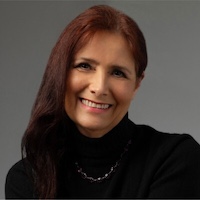
Who: Kay Firth-Butterfield
What she does: CEO of Good Tech Advisory, which helps companies mitigate AI risks
Social media presence: LinkedIn (22,000 followers); X (8,900 followers)
Why you should know Kay: Firth-Butterfield is one of the world’s leading experts on AI governance. In 2014, she became the world’s first chief AI ethics officer, and was formerly the inaugural Head of AI at the World Economic Forum. She currently serves on the WEF’s Global Future Council on AI and AI Governance Alliance, and is a key voice for safe and equitable AI. In 2023, she received a Time100 Impact Award for her work in shaping responsible AI governance.
Insight: “If we are to succeed in creating better economic prospects for all with AI, we have to start by doing better with data. About 3 billion people cannot access the internet … [and] billions more have not created a sufficiently large data footprint for their contributions to be evaluated by generative AI without very precise prompts.” — Butterfield, in her Time100 Impact Award speech
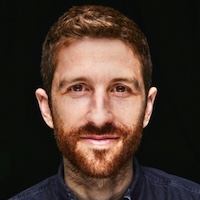
Who: Tristan Harris
What he does:
- Co-founder, Center for Humane Technology
- Host, Your Undivided Attention podcast
Social media presence: LinkedIn (49,000 followers); X (199,000 followers)
Why you should know Tristan: He’s been sounding the alarm about tech’s harms since at least 2013, with a viral presentation about addictive social media. That sparked TED talks, a 60 Minutes interview, the documentary The Social Dilemma, and the nonprofit Center for Humane Technology. The latter educates and provides resources to individuals, tech companies, and policymakers to mitigate the negative impact of social media and AI. He has testified to Congress multiple times on how algorithms are manipulated to influence choices and keep users engaged. He has advocated for “a humane digital democratic infrastructure” to help the U.S. mitigate tech’s risks. However, there is no federal regulation, yet, to tackle these problems.
Insight: “There’s a 1,000-to-one gap between the collective resources going into increasing AI capabilities versus those that are invested in AI safety …. If we spend trillions of dollars on increasing AI’s capabilities, shouldn’t we be spending 5% of that on upgrading its governance?” Harris, at the AI for Good Global Summit
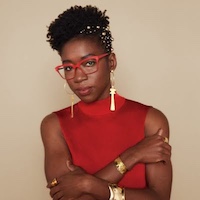
Who: Joy Buolamwini
What she does:
Social media presence: LinkedIn (92,362 followers); X (98,000 followers)
Why you should know Joy: Buolamwini holds a PhD in Media Arts & Sciences from MIT, is the bestselling author of Unmasking AI, and is the founder of The Algorithmic Justice League, an organization that combines art and research to illuminate the social implications and harms of AI. A self-proclaimed “poet of code,” she breaks down technical jargon and uses storytelling and creativity to humanize AI by teaching people about both the costs and possibilities of technology. Buolamwini is also featured in an award-winning film centered on her push to pass first-ever legislation to govern algorithmic bias, and was invited to join a closed-door roundtable discussion with President Biden last year. She’s undoubtedly helping shape ethical AI policy at every level of discourse.
Insight: “One of the challenges when you have such large data sets is knowing what’s even in those data sets in the first place. One of the [alternative] approaches is actually having smaller models where you can actually trace the data providence, so you have a better sense of what’s gone into these systems.” — Buolamwini, on the Ask More of AI podcast
AI assistants may become your new business BFF
An AI copilot makes you more productive by doing work on your behalf. Here are five industry-specific examples of how a copilot can make your work life easier.






